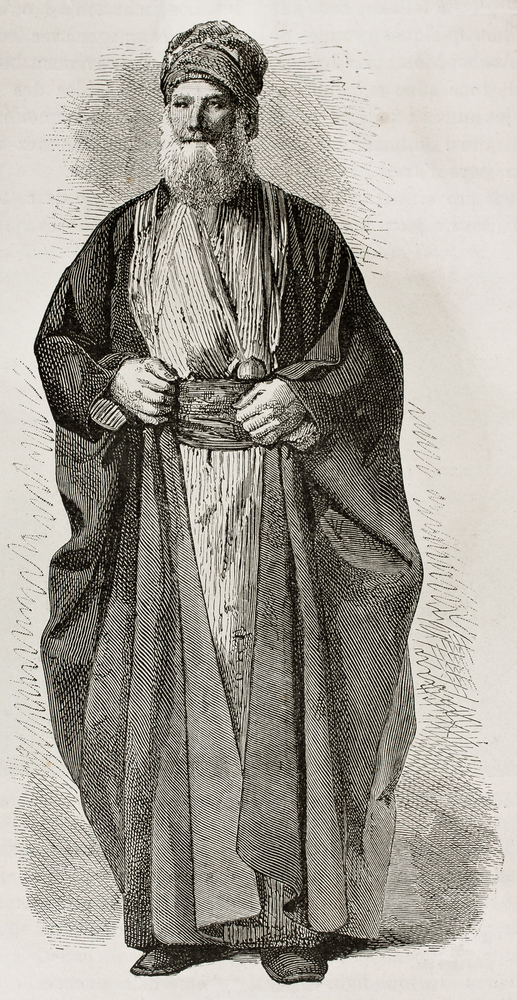From the Category, “The Eastern Eye”
[The Bible is an “Eastern” book. It was written many years ago in the “East” which today we refer to as “The Middle East.” As such, there are many customs and idioms that are not familiar to the “Western” mind.
In understanding the Scriptures it is important for us to understand the culture, but it doesn’t mean that we should necessarily follow that culture. Rather, it is in the understanding of the Eastern culture that we gain light and understanding about many things in the Bible.]
In the last Eastern Eye post, we looked at a couple of idioms that Jesus used. In that article I said, “An idiom is a combination of words that has a figurative meaning owing to its common usage. An idiom’s figurative meaning is separate from the literal meaning. Every language and culture has its own idioms.
For example in my culture if someone is not speaking the truth, you might say, “you’re pulling my leg.” Or, if you paid a lot of money for something, you could say, “this item cost me an arm and a leg.”
Perhaps one of the simplest, yet most misunderstood idioms in the Bible is in II Corinthians 12, commonly referred to as “Paul’s thorn in the flesh.” Paul states in that chapter he was given “a thorn in the flesh, the messenger of Satan.” His thorn in the flesh was the messenger of, or from, Satan.
(A side note here: Some teach Paul’s thorn in the flesh was sent by God to keep Paul humble. Yet Scripture is very clear: it was a messenger from Satan. So either Satan is working for God, or, once again, God is blamed for what Satan does.)
In the Old Testament, similar idioms are used to describe people or nations that would potentially be harmful to God’s people. They are referred to as “pricks in your eyes, thorns in your sides, scourges in your sides, and thorns in your eyes.” Clearly the references were about people.
By reading the book of Acts and the Church Epistles, it is quite obvious to see how badly Paul was treated by various religious people who certainly weren’t sent by the One True God. Today, using idioms from my culture, I would say those people were “a pain in the butt” or “a pain in the neck.” One of the idioms from his culture was “a thorn in the flesh.”
The purpose of Paul’s thorn in the flesh, the messenger of Satan, was to buffet Paul. Satan was trying to stop Paul from preaching the Gospel. Agents of Satan brought the beatings, the imprisonments, the shipwrecks, and the false brethren.
Paul prayed and asked God three times to get rid of his thorn in the flesh. God’s answer to him was that His grace was sufficient for Paul. While Paul did indeed endure many hardships, there was deliverance after deliverance from our loving God.
Until God sends His Son back, there is evil in this world; from Satan there will be persecutions. But God’s grace to help us in time of need is always there. Always!
II Corinthians 11:24-27
Of the Jews five times received I forty stripes save one.
Thrice was I beaten with rods, once was I stoned, thrice I suffered shipwreck, a night and a day I have been in the deep;
in journeyings often, in perils of waters, in perils of robbers, inperils by mine own countrymen, in perils by the heathen, in perils in the city, in perils in the wilderness, in perils in the sea, in perils among false brethren;
in weariness and painfulness, in watchings often, in hunger and thirst, in fastings often, in cold and nakedness.
II Corinthians 12:7-10
And lest I should be exalted above measure through the abundance of the revelations, there was given to me a thorn in the flesh, the messenger of Satan to buffet me, lest I should be exalted above measure.
For this thing I besought the Lord thrice, that it might depart from me.
And he said unto me, My grace is sufficient for thee: for my strength is made perfect in weakness. Most gladly therefore will I rather glory in my infirmities, that the power of Christ may rest upon me.
Therefore I take pleasure in infirmities, in reproaches, in necessities, in persecutions, in distresses for Christ’s sake: for when I am weak, then am I strong.
Mike Verdicchio
2014
Leave A Comment!
Do you have some thoughts about this? We’d love to hear what you think. To leave a comment if you are receiving this post via email or RSS, just click the title above and scroll to the bottom of the post and type in your comment. If not, just scroll to the bottom of this post and type in your comment.
Share This Article!
To share this article on social media, like Facebook, or, Twitter, there are links below.
Resources
There are a number of books that you can read to get insight on customs, manners, idioms and meanings from the Eastern culture in which the Bible was written. The best I know of were written by Bishop K. C. Pillai. I have had the pleasure of listening to many recorded teaching by him.
He wrote three books, and they are hard to find, and are usually over priced. But, if you want to you can check this link to see what Amazon has to offer. Light Through an Eastern Window
Another great resource that I have used for years is a book called, “Manners and Customs of the Bible,” by James Freeman. Mine was printed in 1972 and I know they have newer additions. For the newest edition, just click the link and it will take you to Amazon. The New Manners and Customs of the Bible (Pure Gold Classics)
More Eastern Eye Articles
 In our modern times, it’s unheard of for kings, presidents, or prime ministers to be present on the battlefield. But in the lands and times of the Bible, it was commonplace for kings to not only be present but fight in the battles. This custom was carried out well into the Middle Ages.
In our modern times, it’s unheard of for kings, presidents, or prime ministers to be present on the battlefield. But in the lands and times of the Bible, it was commonplace for kings to not only be present but fight in the battles. This custom was carried out well into the Middle Ages.

